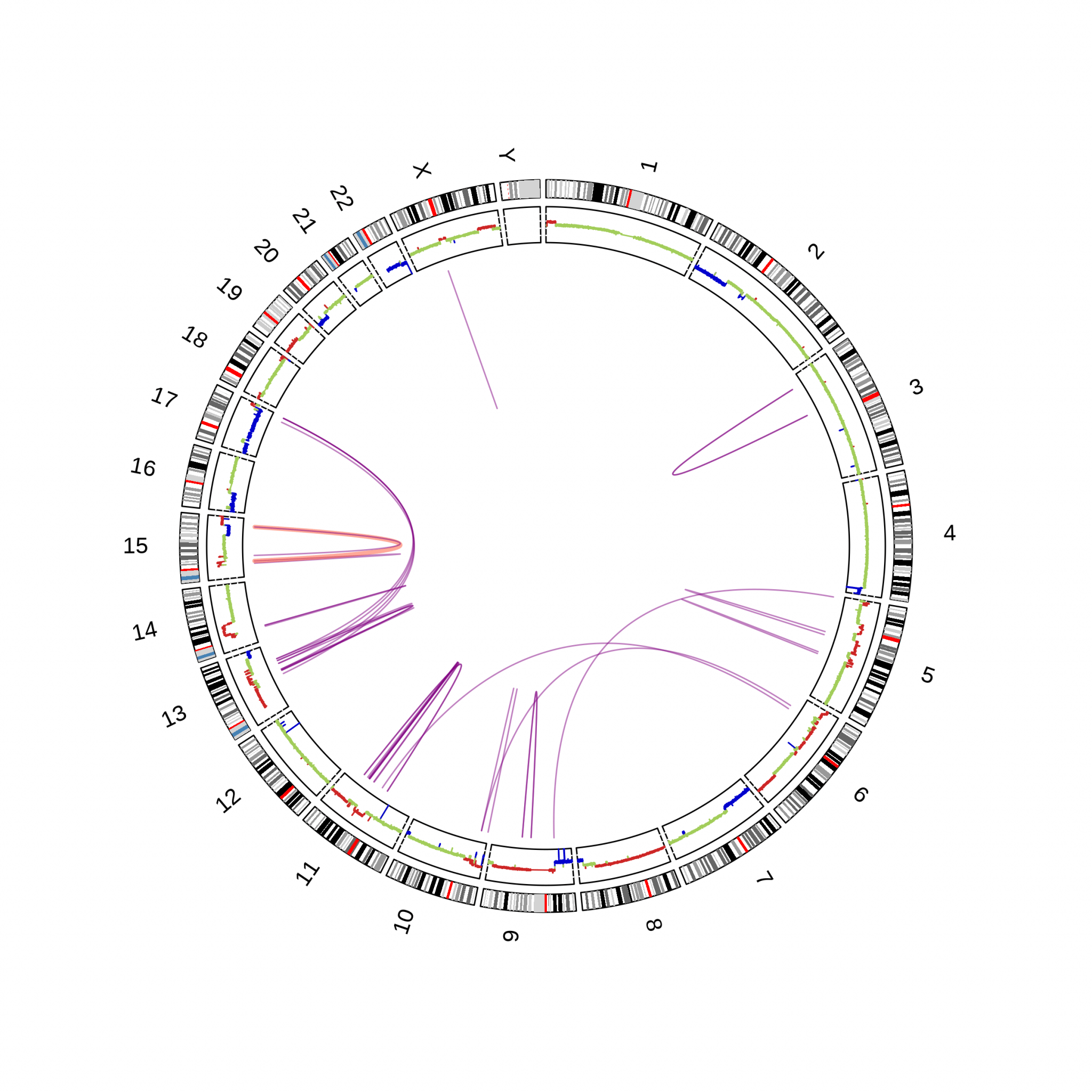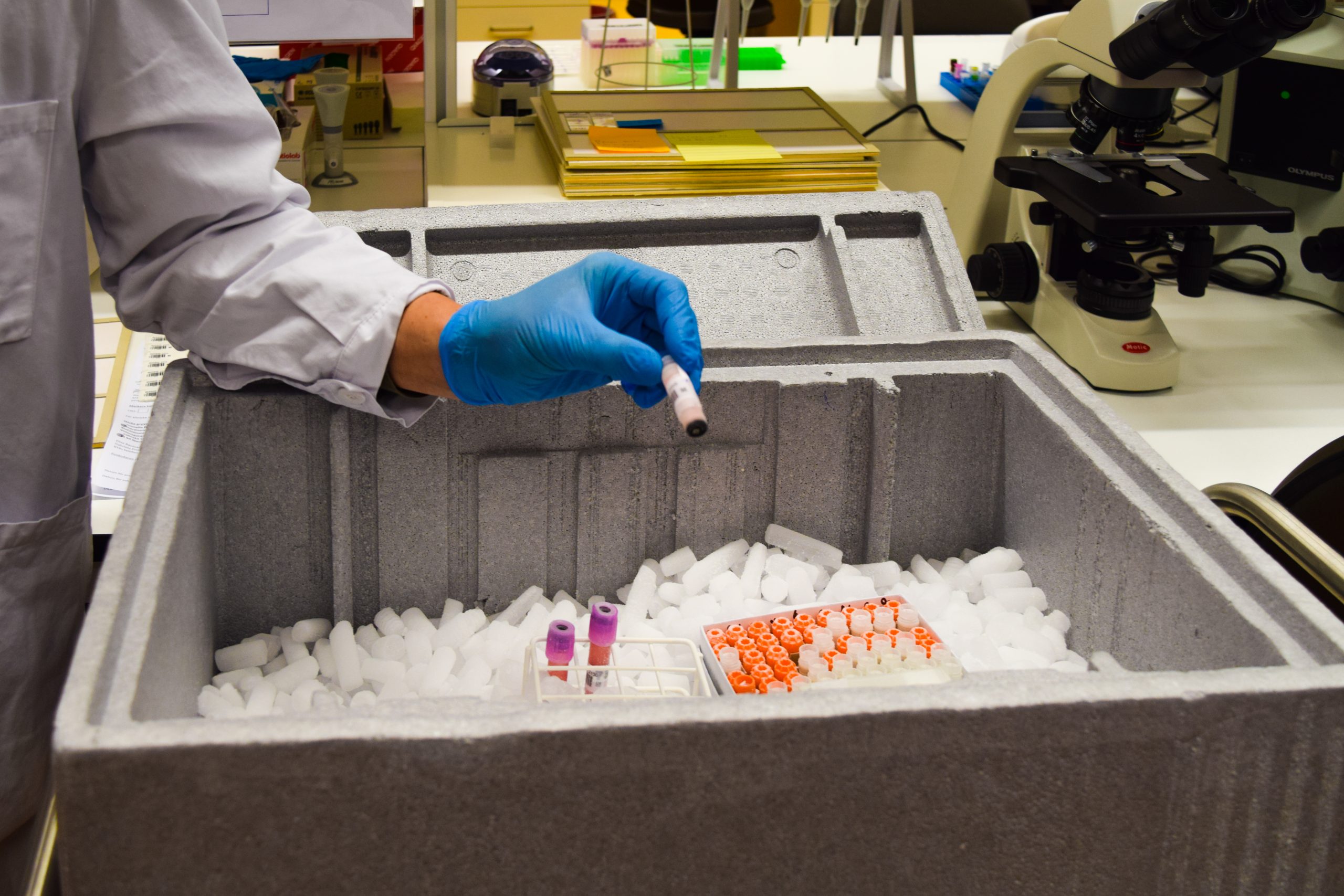Barntumörbanken reports high-quality genomic research data generated at SciLifeLab in a new breakthrough publication
The Swedish Childhood Tumor Biobank (Barntumörbanken, BTB) is a national sample collection and research infrastructure in pediatric cancer. It performs advanced genomic characterization on collected samples, with currently over 2000 registered cases. BTB conducts whole-genome sequencing (WGS) and whole-transcriptome sequencing (WTS) on tumor samples, as well as methylation profiling on CNS tumors and sarcomas. All data is generated through the National Genomics Infrastructure (NGI) at SciLifeLab.
The operation is based at Karolinska Institutet, with Karolinska University Hospital as the research principal and the sample collection belonging to SMB (Stockholm Medical Biobank). BTB is a national collaborative project involving all six Swedish university hospitals where children with tumors are operated on and treated. An essential purpose of BTB is to make samples and generated data available for ethically approved research. BTB also collaborates with researchers who apply to BTB for samples and/or data and provides services to national clinical studies in pediatric oncology.
“We are very pleased about the publication and how it allows us to present the Swedish childhood tumor biobank/BTB as a research resource to the broader community. Our overall aim is to increase the knowledge of childhood tumors and aid in advancing improved treatment, quality of life, and survival for pediatric cancer patients,” says Johanna Sandgren, Director of Barntumörbanken.
In partnership with SciLifeLab, the researchers have developed the BTB analysis workflow characterized by standardized operating procedures, which ensure the delivery of high-quality genomic data. This was initiated several years ago under the previous BTB director Monica Nistér. To showcase the potential implications of overall procedure, they conducted an analysis of NGS data from a pilot set of biobanked tumor and blood samples collected from patients with CNS tumors. Their findings included the identification of somatic and germline alterations with significant biological or clinical significance. The NGS data specifically revealed a wide spectrum of mutations in known or likely driver genes in the majority of patients, supporting the pathological diagnosis and methylation-based classification.
“A crucial aspect of achieving this goal has been the access to the UPPMAX computational infrastructure, provided by SNIC/Uppsala Multidisciplinary Center for Advanced Computational Science, and the long-term and dedicated bioinformatic support via NBIS (National Bioinformatics Infrastructure Sweden). Their assistance in data processing has been invaluable and we are currently working on deposition of BTB data into The Federated European Genome-phenome Archive (FEGA) at NBIS, that will further strengthen the work,” says Teresita Díaz De Ståhl, Senior Research Specialist at Barntumörbanken.
BTB has successfully performed WGS on over 800 tumors and matched blood samples, WTS has also been done on most tumors. Since 2021, the data generated within the parallel GMS Barncancer project, form approximately 400 patients with solid tumors, has also been deposited in BTB. The principal aim of GMS Barncancer project, in which BTB is also actively involved, is to implement WGS and WTS in clinical routine for pediatric cancer patients. The data within the GMS Barncancer project is also produced at SciLifeLab, but within the Clinical Genomics unit.

BTB has established access procedures for secondary use of the samples and genomic data for research purpose and welcomes applications in the field of pediatric cancer. “Since this is sensitive patient derived samples and data the correct handling and accessibility of the material is if great importance,” continues Johanna Sandgren.
“In the last few years, we have, with full financial support from Barncancerfonden (The Swedish Childhood Cancer Fund), focused on sequencing all of the stored cases in the sample collection. This has been done in collaboration with SciLifeLab, including bioinformatic analysis, to enable more research using the generated omics data. Moreover, the Swedish childhood tumor biobank isresponsible for storing all the genomic data produced in the GMS Barncancer project and making it accessible for further research,” says Johanna Sandgren.
The future of life science lies in data-driven approaches, offering significant opportunities to explore and understand biology and human health. BTB is proud to present this pioneering data, meticulously generated within this development, and to be shared with approved research projects.
“We believe that the accessibility of biological samples and data to approved research projects will drive further advances in basic tumor biology and profoundly impact various aspects of clinical care for children with cancer. The precise diagnostic information derived from the genomic data will refine diagnoses, identify oncogenic drivers, and guide physicians in directing patients toward optimal personalized treatments and clinical trials. Are you a dedicated life scientist looking to make a significant impact in pediatric cancer research? Contact BTB to gain access to the data and contribute to this important endeavor to advance our understanding of pediatric cancer and improve the lives of children fighting this disease,” concludes Teresita Díaz De Ståhl.
DOI: 10.1186/s12967-023-04178-4
Contact information:

Barntumörbanken
Johanna Sandgren
Head of Unit
Barntumörbanken
johanna.sandgren@ki.se





